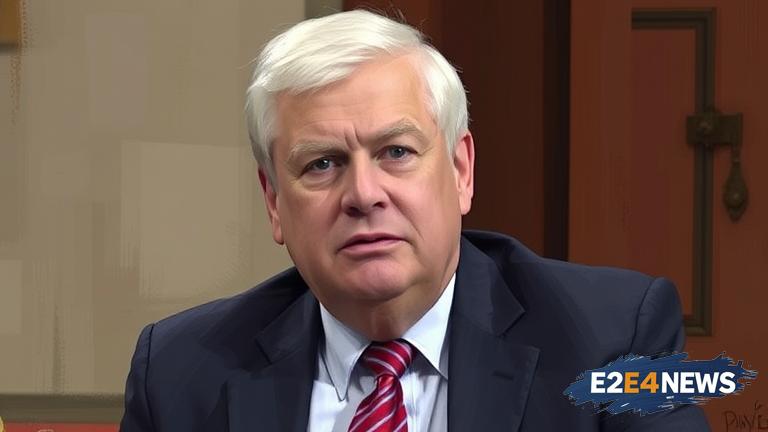The Israeli-Palestinian conflict has been a longstanding and complex issue, with various attempts at resolving the dispute between the two nations. Recently, former UK minister Desmond Swayne has weighed in on the matter, expressing his opinion that a two-state solution is still a viable option. Swayne’s comments have sparked a debate on the feasibility of such a solution, with some arguing that it is the only way to achieve lasting peace in the region. The two-state solution, which involves the creation of an independent Palestinian state alongside the state of Israel, has been a cornerstone of international diplomacy for decades. However, the implementation of such a solution has been hindered by numerous obstacles, including disagreements over borders, settlements, and security arrangements. Despite these challenges, Swayne remains optimistic that a two-state solution can be achieved, citing the need for compromise and cooperation from both parties. The Israeli-Palestinian conflict has its roots in the early 20th century, when Zionist Jews, fleeing persecution in Europe, began to immigrate to Palestine, then under Ottoman rule. Following World War I, the British took control of the region and, in 1917, issued the Balfour Declaration, which expressed support for the establishment of a Jewish homeland in Palestine. This move was met with resistance from the Arab population, who had been living in the region for centuries. The conflict escalated in the aftermath of World War II, when the international community, led by the United States and the Soviet Union, supported the creation of a Jewish state. In 1948, Israel declared its independence, leading to the displacement of hundreds of thousands of Palestinians, known as the Nakba or ‘catastrophe’ in Arabic. Since then, the conflict has continued, with periods of relative calm punctuated by outbreaks of violence. The construction of Israeli settlements in the West Bank and East Jerusalem has been a major point of contention, with the international community widely regarding these settlements as illegal under international law. The Israeli government, however, maintains that these settlements are necessary for security reasons and are a legitimate expression of Jewish sovereignty. The Palestinian leadership, on the other hand, views the settlements as a major obstacle to a two-state solution, arguing that they fragment the territory and make it impossible to establish a contiguous Palestinian state. Despite these challenges, there have been numerous attempts at negotiating a peace agreement, including the Oslo Accords in 1993 and the Annapolis Conference in 2007. However, these efforts have ultimately failed to produce a lasting resolution, with both sides accusing each other of bad faith and a lack of commitment to the peace process. Swayne’s comments have been welcomed by some as a breath of fresh air, given the current stalemate in the peace process. However, others have criticized his views as overly simplistic, arguing that the complexities of the conflict cannot be reduced to a simple two-state solution. The international community, including the United States, the European Union, and the Arab League, has consistently supported a two-state solution as the most viable way to resolve the conflict. However, the current Israeli government, led by Prime Minister Benjamin Netanyahu, has been skeptical of this approach, preferring instead to focus on economic development and security cooperation with the Palestinian Authority. The Palestinian leadership, on the other hand, has become increasingly disillusioned with the peace process, arguing that it has failed to deliver on its promises and that a new approach is needed. In recent years, there has been a growing trend towards a one-state solution, which would involve the creation of a single, binational state encompassing both Israel and the Palestinian territories. However, this approach is highly controversial, with many arguing that it would be impossible to establish a democratic and equitable state given the deep-seated divisions between the two populations. As the debate over the Israeli-Palestinian conflict continues, it remains to be seen whether Swayne’s comments will help to revive the peace process or simply add to the cacophony of voices on the issue. One thing is certain, however: the conflict will only be resolved through a combination of compromise, cooperation, and a willingness to listen to the concerns and aspirations of both parties. The international community has a critical role to play in supporting this process, through diplomatic efforts, economic aid, and a commitment to upholding international law. Ultimately, the resolution of the Israeli-Palestinian conflict will require a fundamental transformation in the relationship between the two nations, one that is based on mutual respect, trust, and a deep-seated commitment to peace and reconciliation.
